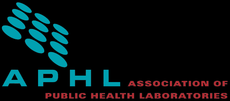|
120 people become ill after eating at a local restaurant.
An investigation begins to determine the cause of the illness. Is the food safe to eat? One of your popular State lakes has been closed for fishing and swimming until further notice.
Who will determine the water is safe? Your close friend just had a baby and she wants to be reassured the infant is healthy.
How can her fears and concerns be calmed? Several people in your community are admitted to the hospital with high fevers and respiratory illness.
The ER doctors want to know what kind of virus is spreading through town. How contagious is this? Your Governor received a letter containing a white powder.
Is it Anthrax? A public health laboratorian is responsible for answering all of these questions. Public health focuses on the well-being of a community. People who work in a public health laboratory are the first level of response when it comes to questions about the safety of the environment and people around you. Microbiologists, biochemists, and chemists work to test biological and environmental samples to provide doctors, epidemiologists, and health officials with the important answers needed to determine the safety of the public. Public health laboratory professionals work to prevent widespread health problems before they occur!
|
WHAT CAN I DO IN A PUBLIC HEALTH LAB? |
|
There are a variety of different people that keep a public health lab running.
Click the job title to find out more information: Laboratory Aide/Assistant
Laboratory Aides are the foundation of a laboratory’s testing staff. Laboratory Aides/Assistants support scientists and technicians by preparing laboratory equipment, supplies, and specimens for the testing process. Laboratory Aides are responsible for a variety of non-technical laboratory duties such washing glassware, preparing solutions and media, and performing instrument maintenance. Laboratory Aides are usually the first laboratory staff members to actually handle specimens and are the responsible for making sure that the laboratory has received the correct specimen type for the test(s) requested. A Laboratory Aide is also responsible for preparing specimens for testing by performing data entry of patient and specimen information, aliquoting specimens according to which tests were requested, and barcoding the specimen to ensure appropriate tracking throughout the laboratory. Laboratory Technician
Laboratory technicians use the principles of science and mathematics to assist scientists in laboratory procedures. Laboratory technician duties are more practically oriented than the analytical duties of a scientist. Laboratory technicians set up, operate, and maintain laboratory instruments, monitor experiments, make observations. They must keep detailed logs of all of their work. Laboratory Technicians prepare solutions and reagents used for testing, install and repair laboratory equipment, perform experimental testing, maintain quality control records, calculate and record results, and often develop scientific conclusions based on test data. Laboratory technicians also assist with the development of laboratory procedures to achieve the best result quality possible. Entry Scientist
The entry level scientist in the public health laboratory will spend a great deal of time learning about many different kinds of methods of analysis and how state-of-the-art instruments are used to perform the testing needed to gain valuable information to inform and assist the public. Laboratories have training programs that will assist a new lab scientist in getting settled into their new work environment and figuring out how they will perform their regular job responsibilities. The learning process will initially include a significant amount of direct, sustained interaction with a trained lab scientist to encourage a success in the training process. Each passing month in the first year of work will bring gradually increasing independence for the new scientist to grow and develop. Terms such as sample loads, sample preparation, instrument runs, data analysis, quality assurance and quality control and results reporting will become common in the new lab scientist’s vocabulary. This will be an exciting time in a brand new career because there will be so many things learned as an entry level scientist, all while performing an invaluable service to protect people and the environment. Intermediate Scientist
The intermediate scientist in the public health laboratory has been fully trained to perform work responsibilities in a respective laboratory section in an independent manner. The intermediate scientist will still receive direction at times from a senior scientist, but generally will have a clear daily work plan for analyzing clinical specimens and/or environmental samples and will be able to successfully complete those analyses and acquire data for review and reporting. Working with instruments such as gas chromatographs, ion chromatographs, high pressure liquid chromatographs, mass spectrometers and nutrient analyzers in the environmental laboratory or preparing and reading plated specimens, identifying pathogens, assessing viral specimens, screening maternal specimens for potential birth defects or screening newborn specimens for potential health-threatening disorders are among the very rewarding and exciting activities that are present in the public health lab for an intermediate scientist. This is a great time in the career of the public health scientist. They are able to combine their educational background with the experience gained in the laboratory to provide essential services to and benefit for environmental and public health. Scientists at this level are truly shaping their career and the face of public health because they are in the formative years of becoming future leaders in the field. Scientist Manager/Supervisor
A scientist manager/supervisor oversees employees, tests, and experiments in a laboratory division or program. Supervisors are generally responsible for maintaining cleanliness and safety at all times, and making sure that other lab staff are performing their assigned duties correctly. Other tasks of a lab supervisor may include actively leading project teams, analyzing experimental results, reviewing quality control and quality assurance statistics, and writing technical procedures and professional reports. A scientist supervisor is also responsible for training staff, overseeing the maintenance of equipment, ordering supplies, and preparing the materials that are needed for the operation of laboratory units or program. A scientist manager/supervisor is also concerned with staying up-to-date on new information and techniques in laboratory service. Senior Scientist
The senior scientist in the public health laboratory usually has 5-7 years of experience and is looked upon as a technical expert and mentor in a specific section of the lab. The senior scientist is extremely knowledgeable in all areas of instrumentation, analysis and assessment that are taking place within the respective lab section. Providing guidance and training for entry and intermediate scientists is an ongoing activity of the senior scientist. Because of their level of experience and ability, they will routinely analyze and interpret data that has been produced in their laboratory section and provide information and recommendations back to public agencies and private clients. While performing services for clients, the senior scientist also integrates the junior scientists into these activities as part of the mentoring process. Often times the senior scientist will be called upon to perform outreach activities such as providing tours of the laboratory to visitors, speaking to public and private interest groups about their role in the environmental and public health laboratory, conducting and/or assisting with training activities for health and environmental professionals outside of the laboratory and presenting the results of their work at professional society conferences and meetings. Senior scientists are multi-talented people in their disciplines and have strong influence in shaping the careers of others and the face of environmental and public health. Lead Scientist
The lead scientist is truly the guiding force within a respective public or environmental health laboratory section. Scientists in these positions generally have 10-plus years of experience working within their professional area and provide the vision and direction for the others working in the section. Responsibilities of the lead scientist may include overall supervision of a laboratory section, final review and comment on all data produced by junior scientists, developing and assisting with the implementation of new methods of analysis, evaluating performance of junior scientists, preparing operating budgets and purchasing new equipment. That’s just some of the activity within the laboratory. Lead scientists will often be asked by people outside of the laboratory to be members of technical and policy advisory groups, join technical society executive committee groups, serve as experts for training courses, author or co-author professional journal articles or review articles for other authors and speak to a wide variety of groups of people interested in environmental and public health topics. The lead scientist is looked upon as a true expert in their area of public health, thereby serving an extremely important role in shaping the direction and importance of public and environmental health in the community, state, nation and world. Quality Assurance Officer
Providing quality testing is a major priority for any laboratory. A Quality Assurance Officer’s main duty is to ensure a high standard of quality testing. A Quality Assurance Officer has many responsibilities in the laboratory. First and foremost they ensure that the laboratory maintains compliance with the many regulatory agencies that allow the laboratory to operate. They are also an auditor that conducts internal audits within the laboratory or can audit other facilities. They are also responsible for maintaining the laboratory's quality management program which includes writing policies and procedures and monitoring quality improvements. Being knowledgeable with the many regulatory agencies and having good organizational skills is required. LIMS Administrator/Laboratory IT
A laboratory Information Management System (LIMS) Administrator not only provides computer support for the laboratory, but also helps manage the laboratory information system or the LIMS. This position requires a strong computer background. A LIMS administrator must have great organizational skills as well good communication skills. Training staff on LIMS and understanding how LIMS work for troubleshooting are both very important. This person may also need to work with the departmental IT group and may also need to work with or manage contractors assigned to develop parts of the system. The Laboratory IT position assists the laboratory with any technology related needs. Being familiar with the laboratories information system and specific software is a must. Not only do you aid in assistance with computer problems, but may also need to provide expertise in various computer languages. Other duties may also be part of this system such as assisting with phone systems. Training Coordinator
A Training Coordinator not only helps with training staff with laboratory skills but also assists the state public health laboratory’s partners on how to properly submit samples. This person will assist in emergency response drills and provide important information to hospitals, clinics, local public health agencies and local fire and police departments on how to proceed with sample submission. The Training Coordinator will also conduct new employee training and work closely with all aspects of the laboratory by providing guidance on training documentation. This person also works closely with the Safety Office, Quality Assurance Officer and the Emergency Response Coordinator. You must have good organizational skills and have experience in public speaking. Emergency Response Coordinator
There is always a threat for terrorism in any state and the state public health laboratory would be of vital importance if there was an attack. Not only is it important for the laboratory to be prepared for a terrorist event, but also for natural disasters. The Emergency Response Coordinator acts as the liaison to emergency personnel and other medical facilities. This person conducts preparedness training for emergency personnel, medical facilities and laboratory staff. They also coordinate preparedness drills to assess the response in various situations. An Emergency Response Coordinator will also be responsible for writing policies, procedures and grants. Being organized and having good communication skills is a must. You will be conducting training seminars as well as speaking at various emergency response events. Safety Officer
A Safety Officer for a Public Health Laboratory has many duties. First and foremost they are responsible for the safety of all laboratory staff. This person helps minimize exposure of harmful agents that are found in the laboratory. In the laboratory, biological, chemical and radioactive samples are handled on a daily basis. Being able to know how to properly handle specimens, store chemicals and dispose of waste is essential for a working laboratory. The Safety Officer will conduct training seminars on new safety procedures and stay current on new rules and regulations dealing with safety. This position will also have contact with local and state emergency personnel to educate them on laboratory safety and hazards. Being able to write policies and procedures is also part of this diverse job. Having good speaking skills and being organized is necessary for this position. Assistant Laboratory Director
An assistant laboratory director performs a wide range of duties but is basically responsible for providing high level administrative support to the Laboratory Director. His or her work is performed in accordance with general policies and procedures and instructions received from the Laboratory Director and in keeping with legal requirements and laboratory goals. As an administrator, an assistant laboratory director participates in the laboratory budgeting, policy and procedure development, and staff supervision. An assistant laboratory director also provides consultation to departmental staff, private physicians, clinical laboratory scientists, and other related health personnel in the performance and interpretation of laboratory testing data. An assistant laboratory directory keeps the laboratory current by researching new procedures and overseeing their implementation in the lab. An assistant laboratory director also provides technical assistance to other laboratory personnel, evaluates products for use in the laboratory, and oversees the use, operation and maintenance of laboratory equipment. Scientist Director/Manager/Supervisor
Good leadership and a clear vision are necessities for all successful businesses. In a laboratory, the director is responsible for overseeing all operations of the laboratory and any related facilities. Laboratory directors are concerned with balancing the needs of the laboratory with the needs of the people who require services of the laboratory. As an administrator, a laboratory director is responsible for managing laboratory staff, recruiting and hiring the appropriate people to fill vacant positions, coordinating staff training and development and overseeing all budgeting and research initiatives in a lab. Laboratory directors also set policies in the lab, make sure that staff members are informed of lab policies, and confirm that policies are being followed to ensure compliance with local, state, and federal regulatory agencies. Lab directors are also responsible for ensuring that the lab provides quality results through examining test data, evaluating laboratory method performance, and reviewing quality control graphs. The laboratory director also serves as the point-of-contact for all laboratory clients including state officials, physicians, laboratorians, environmental health officials, regulatory agency personnel, and the public. |
CAREER SPOTLIGHT: SCIENTIST? ACTRESS? OR PRESIDENT? |
|
By Laurie Peterson-Wright, Chemistry Program Manager, Colorado Department of Public Health and Environment

Who would have known that the 1973 fifth grade class of Beadle Elementary in Yankton, South Dakota could predict the future? As a classroom exercise, we all had to vote on what we would each be when we grew up. I received 10 votes to become an actress, 10 votes to become a scientist and even one vote to be the first woman president!
My parents were adamant that I finish every project, class, book, craft or book I started. This instilled within me a commitment to never quit and a sense of wonderment at where the next bit of knowledge and hard work would take me. My passion for any type of science began at a young age. I would stay glued to my microscope or my telescope at night. I wanted to learn everything about how humans and the universe operated. I had so many educational ambitions – teaching, mathematician, certified public accountant, physicist, medical doctor, astronaut (and let us not forget Hollywood Star) – but after many years in school, I reeled my focus in to chemistry, mathematics and business administration. My first position was in cancer research, but I was shortly introduced to environmental chemistry and project management. I was intrigued by how chemical and radiological pollutants interacted with the environment and what we could do to mitigate exposure, especially for sensitive populations. I spent 15 years in the environmental remediation/waste management field and then accepted a position with the State of Colorado Chemistry Program in 2001. Immediately I embraced public health and how these same contaminants in the environment could be so easily transported. I was fascinated by how they interacted with the human body including sensitive human and animal endocrine systems. This world is an amazing place! By continuing to focus on my passion in public health, I will only increase my knowledge of how all sensitive systems are interconnected. Live gently, and also boldly, my fellow scientists. Oh, and by the way….I still act…and PS don’t tell my parents I never finished Moby Dick. |
FIND OUT MORE! |


